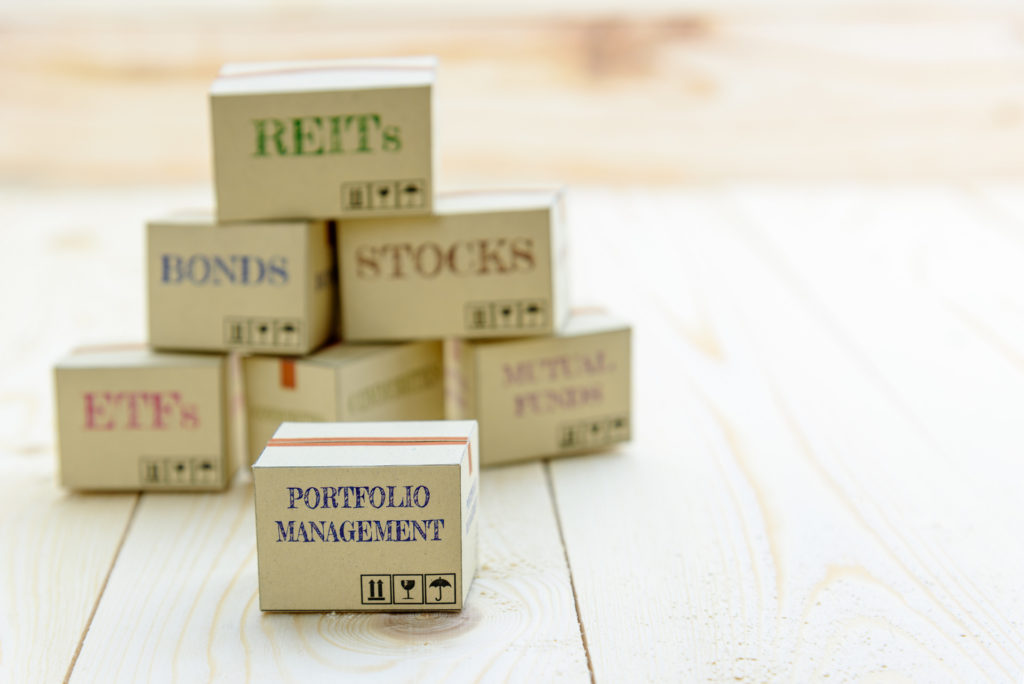Not all investment strategies are created equal, or yield the desired high returns with low risk. While an index fund investing strategy may be appealing in its ease of use and promised diversification, there are often hidden downsides.
Index funds alone may not be the most efficient way to grow your wealth. Here we evaluate the different benefits of investing in index funds versus single stocks, as well as the often unforeseen pitfalls of mutual funds.
Index Fund Investing Strategy
 Because investors cannot invest directly in an index, an index fund is designed to track a particular industry, asset or type of company. It is a type of mutual fund (a portfolio of stocks, bonds or other securities) in which you select the sectors or categories you like and pool your assets with other investors to purchase shares of the fund’s performance. As with any investment strategy, the funds you invest in should reflect your risk level.
Because investors cannot invest directly in an index, an index fund is designed to track a particular industry, asset or type of company. It is a type of mutual fund (a portfolio of stocks, bonds or other securities) in which you select the sectors or categories you like and pool your assets with other investors to purchase shares of the fund’s performance. As with any investment strategy, the funds you invest in should reflect your risk level.
The benefits to investing in index funds include:
- “Set it and forget it.” Index fund investing strategy is easy, often where new investors start. There’s no research, buying or selling. For this reason, index funds or mutual funds are often referred to as passive investing.
- Simple diversification. This is especially true for small or individual investors, or those new to investing, with limited assets available.
- Minimal need to understand accounting, finance or the market.
Index funds are professionally managed and the fee structure is based on annual expense ratios, plus commissions in some cases. Both of which go against overall returns.
If you have a 401(k) you likely have index or at least mutual funds. Retirement plans are designed to make saving easy and thus simplify the assets to usually only offer these types of funds. But then that shifts the focus from investing to saving for retirement. These are two different goals and should be treated as such. Single stocks may be a better option for a well-rounded investment strategy.
Single Stocks Investing Strategy

While investing in index funds and mutual funds is considered passive investing, a single stock investing strategy is more active. There are several benefits to active investing by including single stocks in your portfolio:
- Lower admin fees. For stocks that you hold on to for long periods of time, this fee savings does add up.
- Easier tax management. Since you choose when to sell, you choose when to take gains and losses.
- More control. When you (or your advisor) selects a stock, you know what you own. You are in control of what you invest in and when you make the investment.
- Greatest ability to diversify.
Building a portfolio with single stocks allows for more active investing through constant attention to the portfolio, accounting for each stock’s underlying fundamentals above the overall market risk. This tactical allocation is key to producing risk-adjusted returns.
Another potential issue with an exclusive mutual or index funds investing strategy is that indices aren’t always screened for profitability or focused on fundamentals. This means that the index may not be as diversified as you initially thought. And in many cases, the lure of “easy” diversification is what drove investors to index funds in the first place.
Diversify, Diversify, Diversify
Diversification is a term used frequently when discussing the best investment strategies. And for good reason. The point of diversification is to avoid systemic risk that could threaten your entire portfolio.
Systemic risk refers to the possibility that an event at the company level could then spark instability so severe that it causes an entire economy or industry to implode. Remember 2008? Systemic risk was the biggest contributor to that financial crisis and what some investors are still recovering from over 10 years later.
A company is considered to be a systemic risk if it fits at least one of the following:
- The company has a large representation in its respective industry.
- The company contributes significantly to the overall economy.
- The company is intricately connected with other companies.
If a company is considered to be a systemic risk, it is “too big to fail” (also the name of the movie that portrays part of the 2008 financial crisis).
While systemic risk usually applies to companies, other institutions, or even countries, are also vulnerable. For example, the U.K.’s vote to leave the European Union will likely have widespread, global economic effects.
Solution: Create a Custom Portfolio
 Most investment goals are the same: the most return as possible for the least amount of risk. To avoid systemic risk and downside risk, an actively managed custom portfolio is ideal. There is a distinct advantage to building individual securities from a particular sector, such as technology, financial, energy or materials. And there are simply more choices with a custom portfolio. Stableford advisors do the research and can provide extra value with custom stocks.
Most investment goals are the same: the most return as possible for the least amount of risk. To avoid systemic risk and downside risk, an actively managed custom portfolio is ideal. There is a distinct advantage to building individual securities from a particular sector, such as technology, financial, energy or materials. And there are simply more choices with a custom portfolio. Stableford advisors do the research and can provide extra value with custom stocks.
That said, there is still value in having an index fund investing strategy, especially in emerging markets and retirement plans. As a fiduciary, we do what is in the best interest of our clients and whatever works for their unique situation – index funds, stocks or both. We give you the best chance for success, while simultaneously keeping your investments safe by managing the downside risk.
To learn more about the risk in your current portfolio and if adding stocks are a good option for you, contact Stableford or call 480.493.2300.
